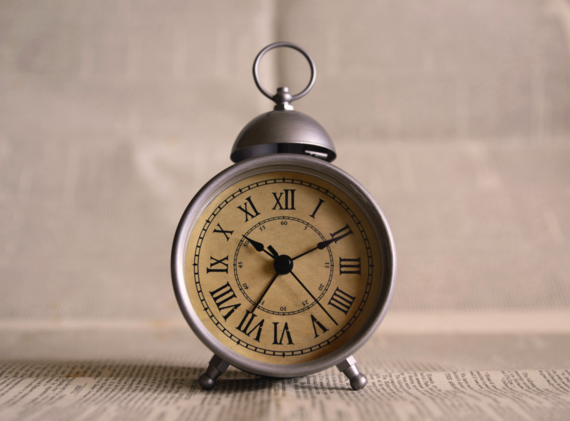If you reach the end of each day with scores of unmarked tasks on your to-do list, you're probably looking for ways to improve your time management. Oxford Dictionaries define time management as "The ability to use one's time effectively or productively, especially at work."
Not one of your strengths? Here are three possible reasons why.
1. You plan out your activities, but don't plan the things you actually need to do.
It's pretty easy to plan the big things that we deal with in slots -- work, exercise, reading, a long commute. We know how to demarcate time for those in different-colored markers, or hues of your Google Calender. But there are other things we do that devour our time and seldom make it onto the schedule. For example, if your inbox is taking up a large chunk of your focus time that you need to spend on an important project, then you need to schedule time for email -- because it ain't gonna read itself, yo!
If you plan to work from a coffee shop for two hours, do you schedule in your commute? Maybe you have a slot after work when you'll pick up groceries on your schedule... but what about driving home, unloading the carrier bags from your car, putting away the groceries and cooking dinner?
2. You manage your time, but not your ENERGY.
It's all very well to allot an hour for this project, and hour for that project, and hour for working out, and hour for cooking dinner and an hour for shopping... but if you're under slept, underfed and or feeling just too fatigued, you're either not going to get everything done, or you're going to take much longer to complete tasks than you think.
That's why 24 hours of work is not 24 times better than one hour of work.
Although it takes (all too valuable!) time to do things that give you energy -- like sleeping, fitting in a creative activity, or walking outside -- the result will be increased productivity, health and enjoyment. What's the point if we're not having fun, right?
3. You schedule too many things in too little time.
We tend to overestimate how much we can do in allocations of time. Sometimes, we don't know how much time something will take us.
Conversely, Parkinson's Law states that any amount of work will expand (or contract) to fill the amount of time we have given to it.
This means that scheduling time to activities is important when they are project based (that is, when you arrange available time according to an end goal -- like finishing a specific task -- rather than working on a process -- like spending an hour "writing"). However, when they're more general, we tend to think that something will take far less time than it does.
If you habitually overestimate how much work you can get done in a day, break the work down into smaller steps, and then decide on an amount of time for each of those steps. Working with a free time-tracking tool like Toggl (or just recording how much it takes you per task in a notebook) will give you an idea of how long it takes you to complete routine tasks.
Ultimately, there will always be too much to do, in too little time -- especially in today's frantic, technology-driven world where most of us are attempting to juggle multiple roles. However, taking a realistic look at what needs (really needs!) to be done, the time we have available to us, and perhaps most importantly, our energy levels, means that we can use our time to our best advantage.
Sarah Laurence is a writer and online education consultant. Find her at www.sarahevelyn.co.za
